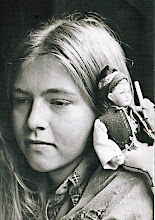skip to main |
skip to sidebar

About Me

- Christine H.
- I love antique postcards because they preserve evidence of everyday life as well as celebrations and sad events. Looking at an old postcard is like holding a single piece of a puzzle; we have to imagine the rest. I will try to put up a postcard every day. If you have a special request for a particular city or place, let me know!



I'd love to visit Ukraine some day.
ReplyDelete~Randy
This is so beautiful ... .
ReplyDeleteit really matters not what it says!
Just seeing the beautiful penmanship is nice. Messages on postcards I feel add interest to them
ReplyDeleteJudy
the card says ( some words i can't read)
ReplyDelete"Dearest Ann, a few days ago, we got a greater gift. Our Mother told me to write quickly a few words ( the card is damaged, so i don't know what's the card context)."
sorry for my poor english ;)
Sebastian - student from Poland
Thank you, Sebastian!
ReplyDeleteYour English is excellent and I am so very thankful for your translation. It's a shame that the card is damaged.
Best of luck with your studies,
Christine
In Polish:
ReplyDeleteJezus + Maryja Lwów, 5 Maja 95
Najdroższa Mamo, już parę dni temu otrzymałyśmy w całości wielki dar Mamy. Nasza Matka kazała mi zaraz napisać słówko podziękowania od niej i od nas wszystkich; przepraszam za ... zrobiłam. Pragnęłabym wyrazić swoją ... , niech Pan Bóg ... , a my na zawsze już ... Mamę i wszystkich jej intencja(ch), a szczególnie ... Mamie. Na zawsze to znaczy, nie póki my żyjemy, ale póki Zgromadzenie nasze istnieć będzie, gdziekolwiek na tym szerokim świecie.
Za parę dni napiszę dłużej, z powinszowaniami na Św. Zofię,
English translation:
Jesus + Mary Lviv, 5 May 95 (meaning 1895!!)
My Dearest Mother, we have received your great gift a few days ago already. Our Mother (meaning the abbess), told me to write a thank you card from her and from all of us a few days ago; I apologize for … done (probably: for that I have not done it yet). I would like to express my … , may the Lord … , and we for ever … (probably: will be praying for you) Mother and all your intentions, and especially … Mother. For ever means not as long as we will live, but as long as our Convent will exist, wherever in this huge world.
I will write more in a few days, with greetings for Saint Sophie…
The card was written in Polish. The language used suggests that it was written by a very religious person. Based on what is written, I assume that the card was sent by a woman living in the convent in Lviv to her mother living in Warsaw. The mother lived in Warsaw at Smolna street which at that time was considered as posh and only very wealthy people could afford to live there. I found information that in this particular building, at 25 Smolna, there were huge and spacious flats with six bedrooms.
“greetings for Saint Sophie …” In Poland we celebrate not only the day of the birth, but also the “day of the name”. Each day in the calendar refers to different names, so that everyone has his/her own feast on the particular day of the year. Sometimes it is the same day, when the particular saints’ feasts are observed, but not always as not all the names have their own saints. For many people their name day is much more important than their birth day. The addressee’s name is Sophie, the Sophie name day is on the 15th of May (in 10 days from the day when the card was written).
You are right Christine, from 1772 to 1918 Lviv officially belonged to the Austrian Empire, but from 1349 to 1772 and also from 1918 to 1939 it belonged to Poland. And also during the difficult years of 1772 – 1918 Polish language, culture and traditions were still cultivated by the people of Lviv. When Poland was invaded by the Nazi Germany the city was incorporated in the Soviet Union.
I hope you will not ban me for this a bit long post :-)
But I love history and just found it very interesting and exciting.
Edyta
Ps. I think this website is just wonderful! I came here from the postcrossing :-)
Edyta,
ReplyDeleteNo, you are not banned from the blog. Instead, you are invited for dinner, although it's a bit far from Poland. I greatly appreciate your comments and the additional information. thanks so much.